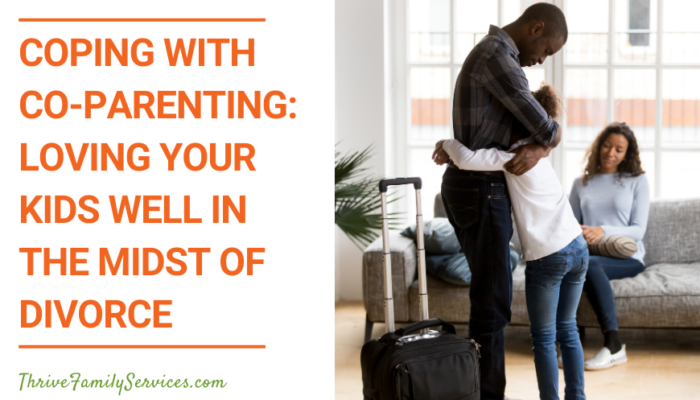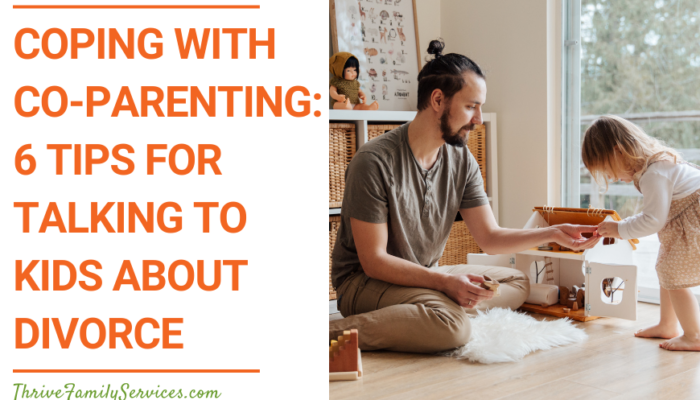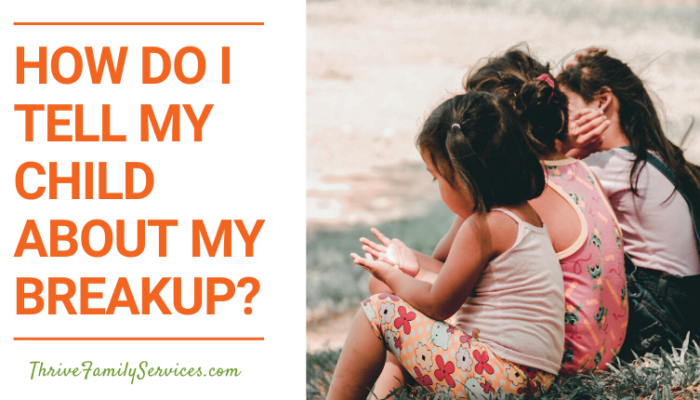“We don’t have to be perfect in our parenting, just purposeful.”
― Holli Kenley
Sofia and Ty* loved each other since they started dating as high school sweethearts. Throughout years of increasing work demands, opposing life goals, and feeling they had become very different people, the two grew apart and began fighting frequently in front of the kids. The couple felt it was time to make a difficult decision to separate. How could they continue to raise four kids together ranging from pre-school to pre-teen, especially without letting stress seep into interactions as tensions ran so high? How could they make sure to put their children first when co-parenting, as Sofia & Ty knew firsthand how painful separation could be as they too were children of divorce?
Coping with Co-Parenting
Divorce is a difficult process that can result in painful emotional responses from both children and adults. However, there is hope in co-parenting to provide emotional stability and comfort for your children. With the help of an Emotionally Focused Therapist, couples in the process of separation or divorce can come together to serve as a strong foundation for your children throughout this confusing time.
How does divorce affect your kids?
Children whose parents are unable to model good communication skills or provide a secure home environment experience emotional and physical trauma even into adulthood (Brown, Giacomoni, Charette, 2020). Kids often feel torn between trying to make both parents happy and meet the family’s evolving needs and expectations. As a result of exposure to high-conflict divorce, children can develop issues with trust, behavior, focus, and development of unhealthy coping skills (Allen, 2016).
What can parents do?
Co-parents can change this dynamic by coming to agreements peacefully on behalf of your children. It takes collaboration, communication, coordination, and a “good for the all” family approach (Murphy, 2012). As shared parents work together, you can model communication for your children and help foster continued healing and cooperation in the family. By giving special attention to your children’s needs and mapping out a defined parenting plan, your kids can experience a sense of safety as they adjust to the new family dynamics (Allan, 2016). Parents may live apart, but you can still decide to work as a team to provide the best care for your children (Blum, 2020).
How does divorced/separated couples counseling work?
Legal services do not always address the underlying conflict that continues to impact post-separation couples and your children (Allan, 2016). Emotionally Focused Therapy can help co-parents understand where you tend to get stuck, find new ways to express yourselves, and take the other parent’s needs into account in these new shared parenting roles. Through EFT, you can begin to de-escalate conflict and create more positive communication patterns for the well-being of your children.
Counseling can also provide professional guidance on how to best care for your children’s emotional and psychological needs (Blum, 2020). As co-parents begin Emotionally Focused Therapy, your counselor can help you mutually build a therapeutic contract to work on specific problems and meet tangible goals. Building open communication between co-parents contributes to the cohesive, healthy functioning of your family after the divorce takes place (James, 2010). The motivation to continue to build your shared parenting relationship can stem from the mutual love you both hold for your children.
Where can you go for help?
Divorce can be a complex and difficult process of transition for your family. Here at Thrive, we hope to offer compassion-filled co-parenting counseling so you can provide your children with a safe and stable family environment moving forward. Contact 303-513-8975 or info@thrivefamilyservices.com to get in touch with a professional who can help you navigate shared parenting today.
*Based on a fictional couple.
REFERENCES
- Allan, Robert (2016). The use of emotionally focused therapy with separated or divorced couples. Canadian Journal of Counselling and Psychotherapy, 50(Supp 3), S62–S79.
- Blum, Lisa (2020). Co-parenting counseling: In divorce, and in new family creation. Retrieved from DrLisaBlum.com.
- Brown, Jerrod, Giacomoni, Carlo A., Charette, Cody (2020). High-conflict divorce: Impact on children. Retrieved from mamft.com.
- Murphy, Stacy Notaras (June 1, 2012). When the vows break. Counseling Today. Retrieved from Counseling Today.



